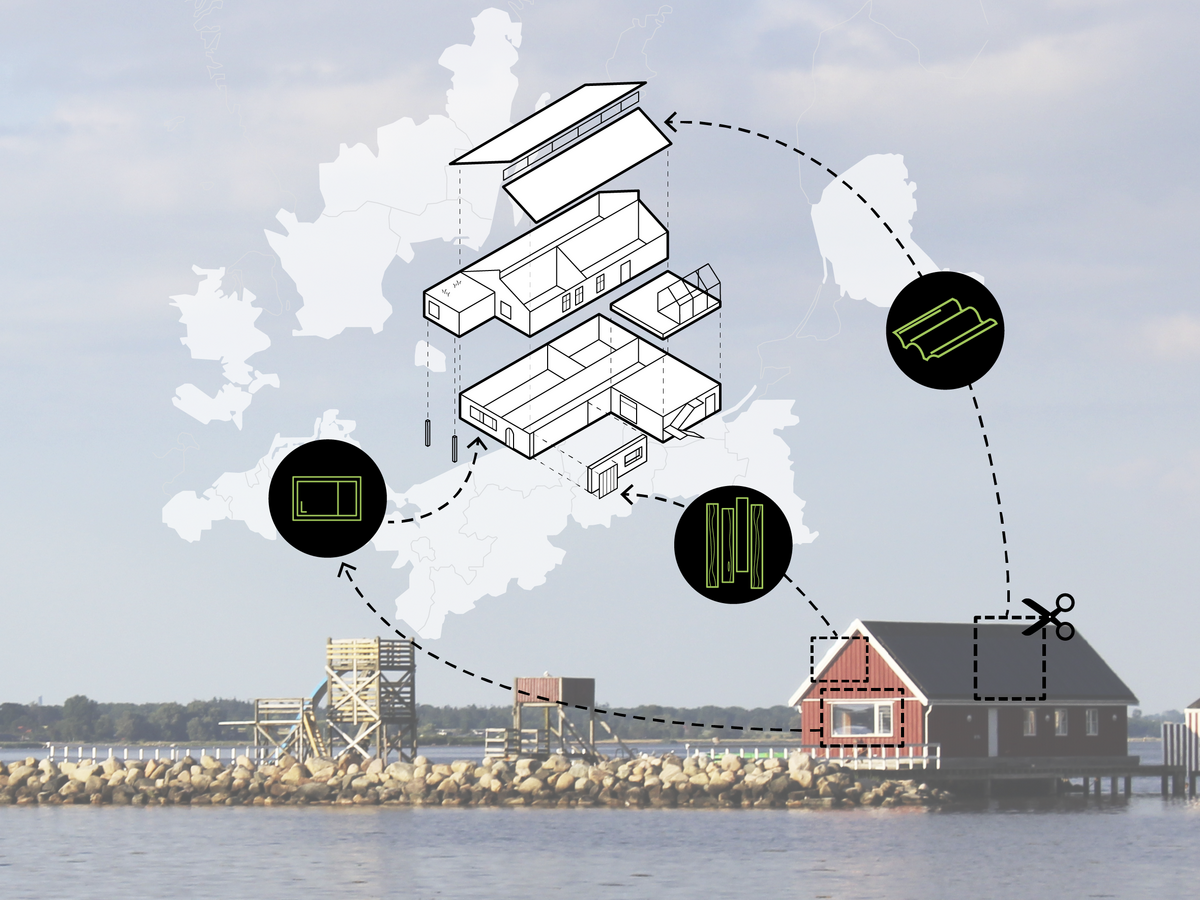The FutureBalticBauhaus project aims to achieve a cross-border development in the region to radically reduce CO2 emissions in the construction of buildings through the extensive reuse of building components. A cross-border market is to be created in the South Baltic region through joint action, which, based on the Bauhaus development of the 1920s in Germany, will be promoted by a common design idea of the resource saving reuse of building parts within the region.
By reusing building components, a considerable amount of the CO2 emissions from the production of new building materials can be avoided, as less new, raw resources are used. The objectives of the project will be tested and demonstrated in three pilot project, a training program and guideline. With these we aim to inform further on new approaches as well as, especially within the guideline, develop and present the FutureBalticBauhaus concept – a design idea and regional identity through circularity for the South Baltic region.
The countries in the South Baltic region around the Baltic Sea have a common history and building culture, and through the EU, common objectives for climate protection. Different regional implementation strategies and laws require joint action to simplify and create a new cross-border culture for the economical use of available resources to increase regional added value in the communities.
The participating municipalities and stakeholders from science and industry show how joint action can turn a regional initiative into a guiding idea for the design of a climate-positive region. Due to the complexity of the project and the holistic nature of the approach, it is particularly important that the municipalities involved (Holbaek and Kalmar), investors and companies from the business sector (like GodaHus and UnseKinder) and the scientific community from the Hochschule Wismar and Linnaeus University develop the project together. Only through interdisciplinary joint action is it possible to pave the way for a more circular and CO2-reduced building sector and improve in the area of climate protection.


